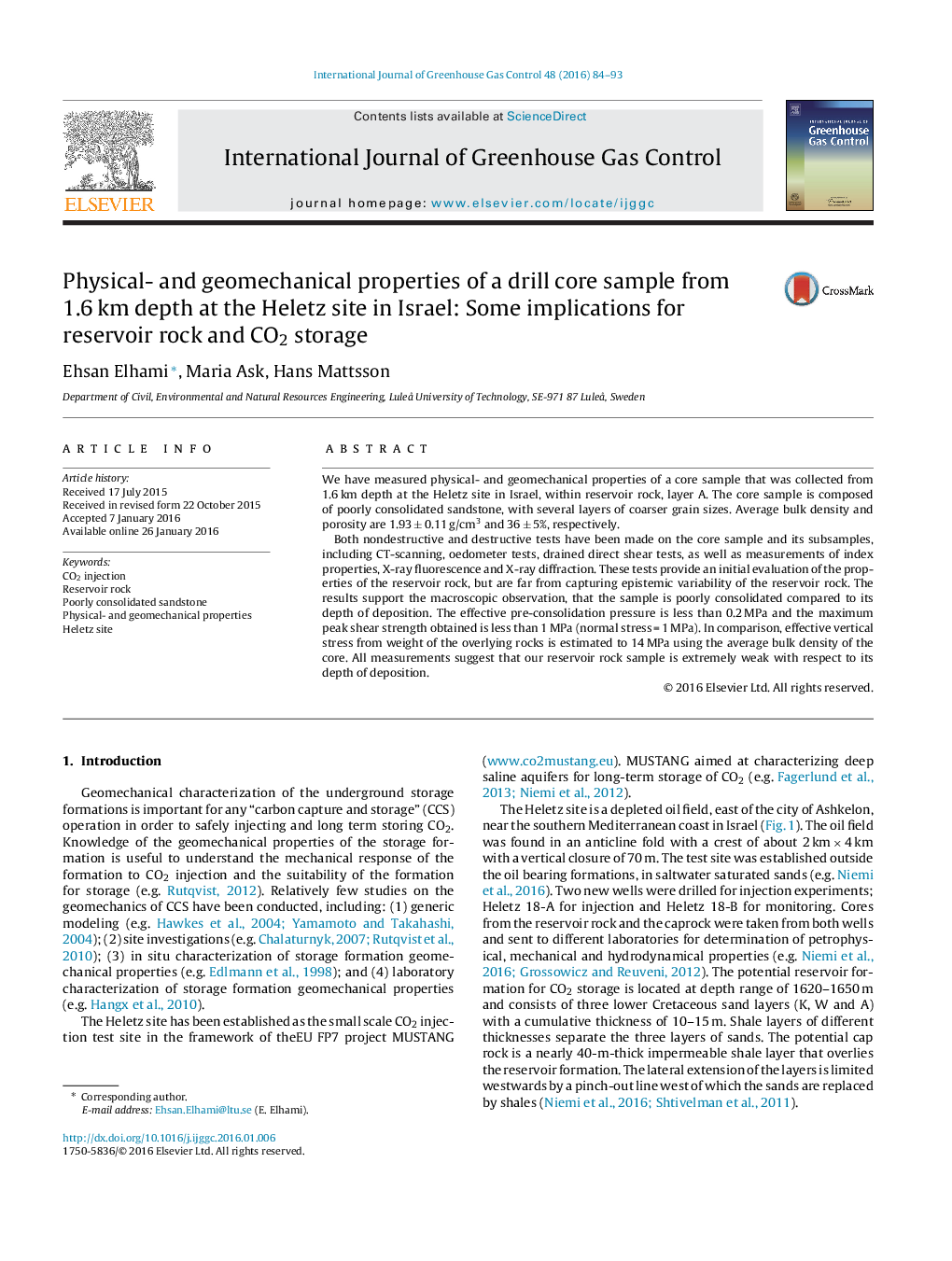| کد مقاله | کد نشریه | سال انتشار | مقاله انگلیسی | نسخه تمام متن |
|---|---|---|---|---|
| 1742878 | 1521973 | 2016 | 10 صفحه PDF | دانلود رایگان |

• From visual inspection and sample preparations, it is obvious that the sandstone from layer “A” at 1634 m depth is poorly consolidated and little cemented.
• The results from destructive geotechnical/rock mechanical tests support the macroscopic observation, that the sample is poorly consolidated compared to its depth of deposition.
• The tests suggest that the sample has somewhat higher porosity than that measured in other wells at the Heletz site and by other methods.
• Low strength of the sample may result from stress transfer or pore pressure build up.
• To determine the epistemic uncertainty of the results, further tests of the reservoir rock is required.
We have measured physical- and geomechanical properties of a core sample that was collected from 1.6 km depth at the Heletz site in Israel, within reservoir rock, layer A. The core sample is composed of poorly consolidated sandstone, with several layers of coarser grain sizes. Average bulk density and porosity are 1.93 ± 0.11 g/cm3 and 36 ± 5%, respectively.Both nondestructive and destructive tests have been made on the core sample and its subsamples, including CT-scanning, oedometer tests, drained direct shear tests, as well as measurements of index properties, X-ray fluorescence and X-ray diffraction. These tests provide an initial evaluation of the properties of the reservoir rock, but are far from capturing epistemic variability of the reservoir rock. The results support the macroscopic observation, that the sample is poorly consolidated compared to its depth of deposition. The effective pre-consolidation pressure is less than 0.2 MPa and the maximum peak shear strength obtained is less than 1 MPa (normal stress = 1 MPa). In comparison, effective vertical stress from weight of the overlying rocks is estimated to 14 MPa using the average bulk density of the core. All measurements suggest that our reservoir rock sample is extremely weak with respect to its depth of deposition.
Journal: International Journal of Greenhouse Gas Control - Volume 48, Part 1, May 2016, Pages 84–93